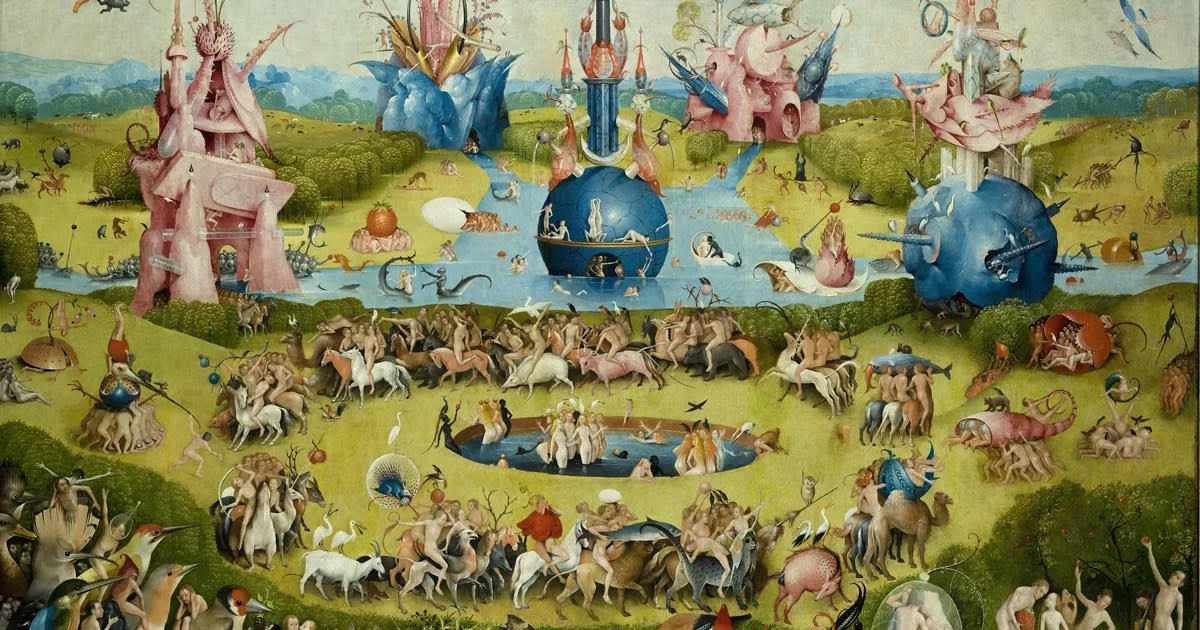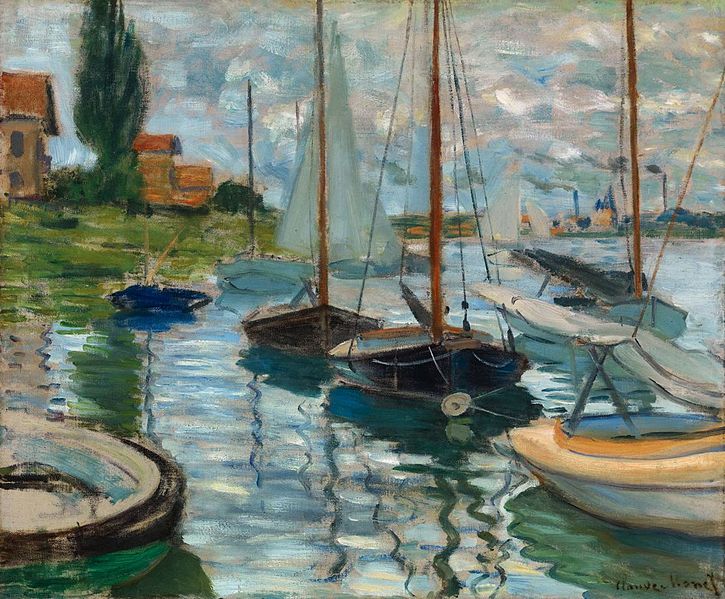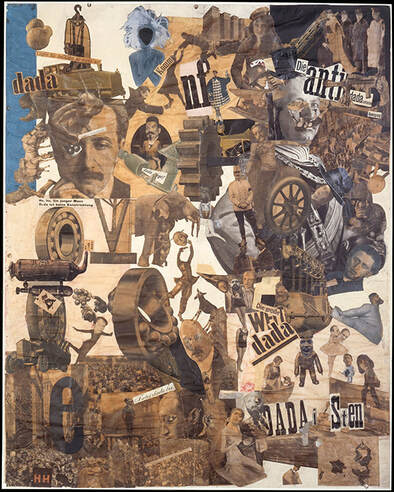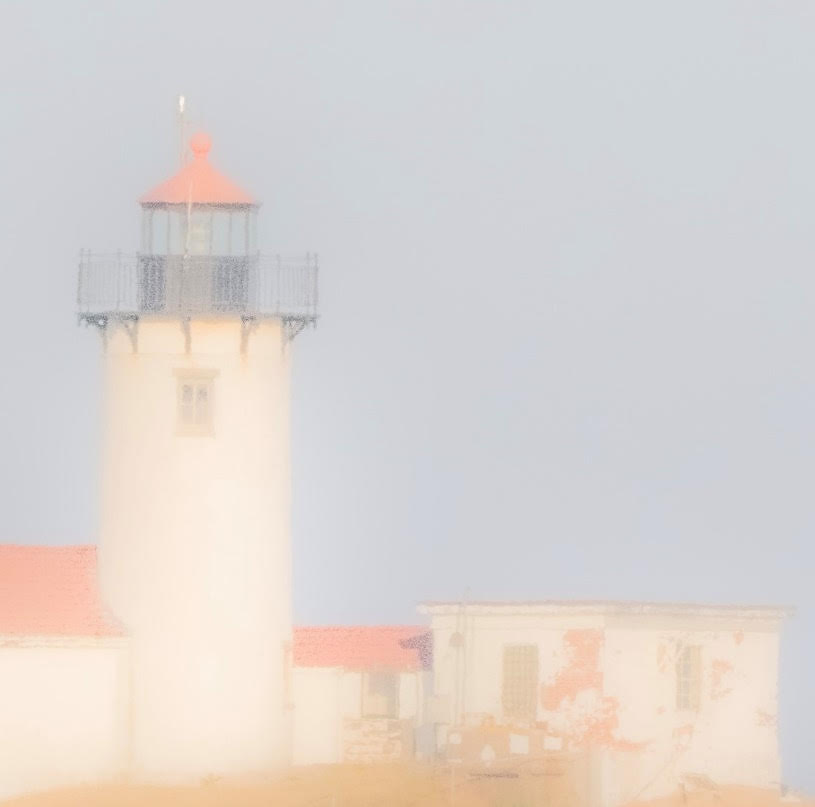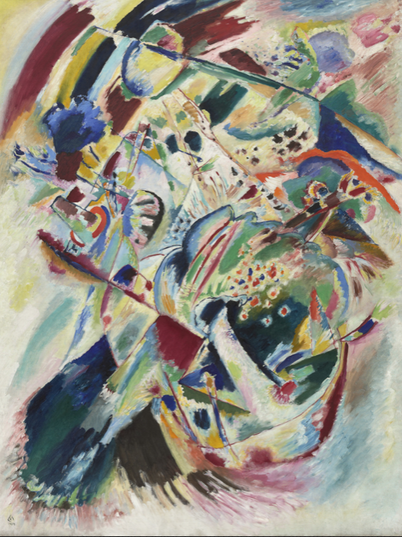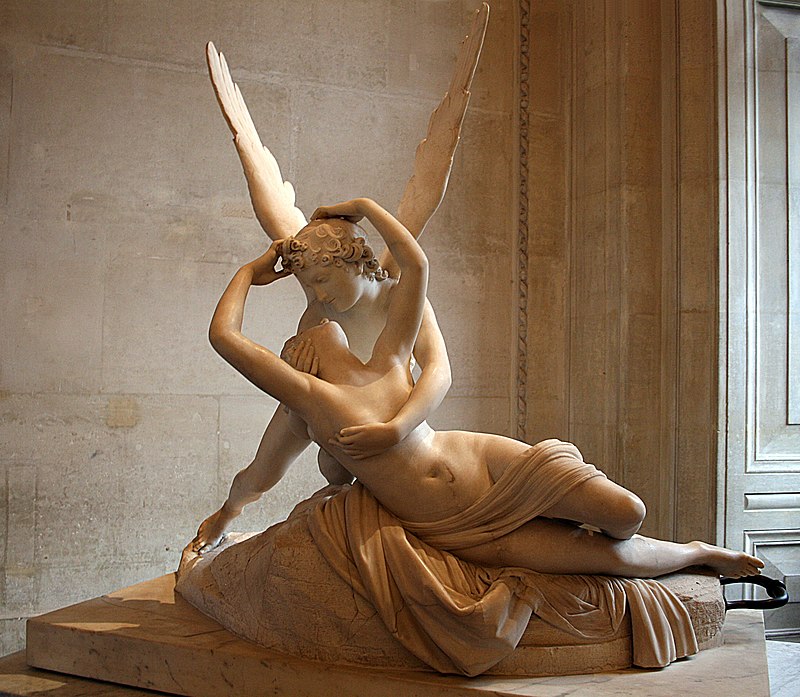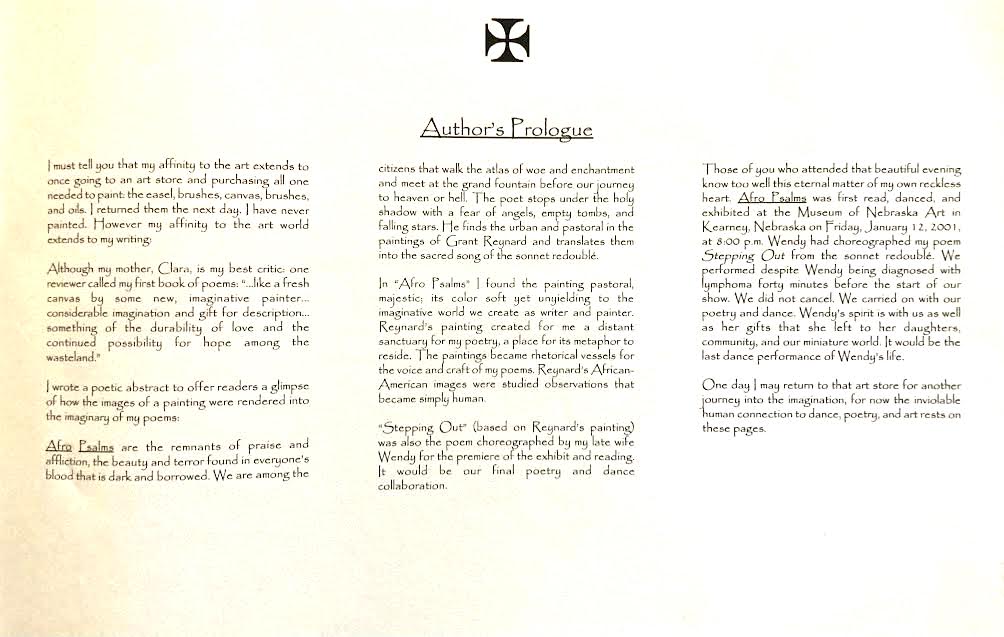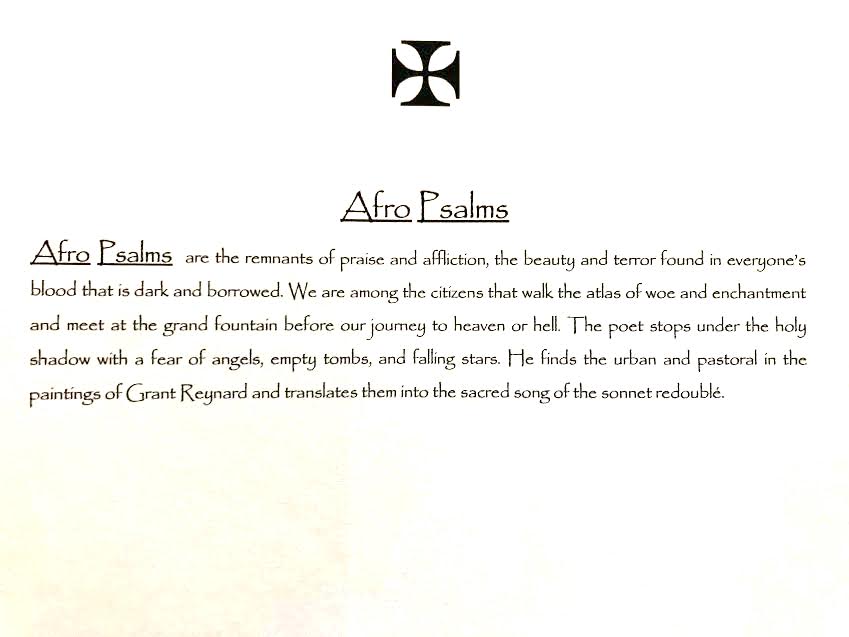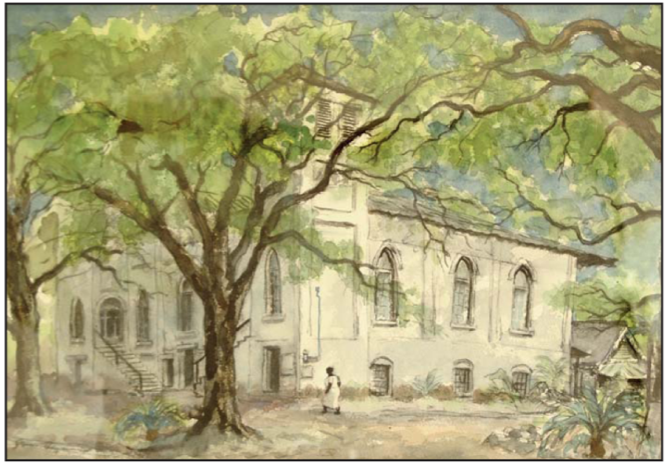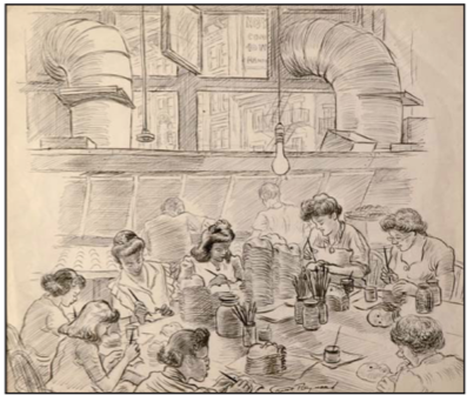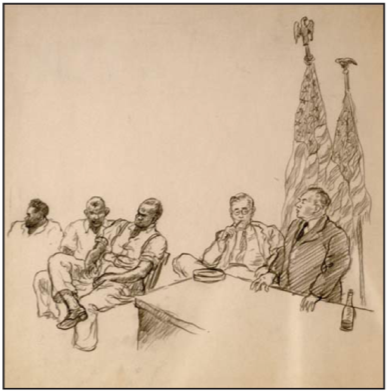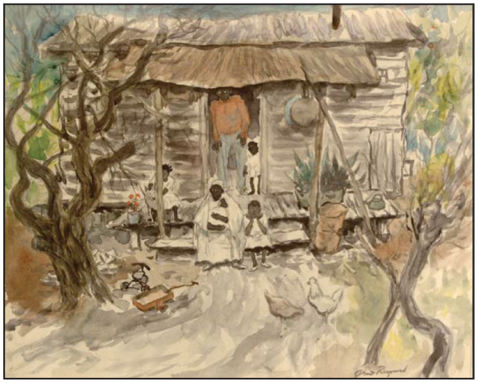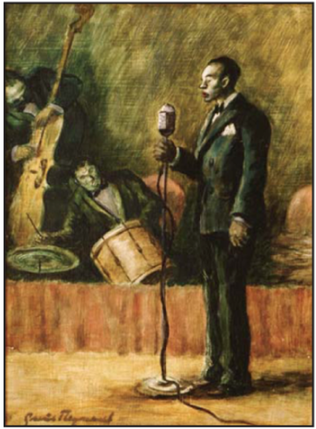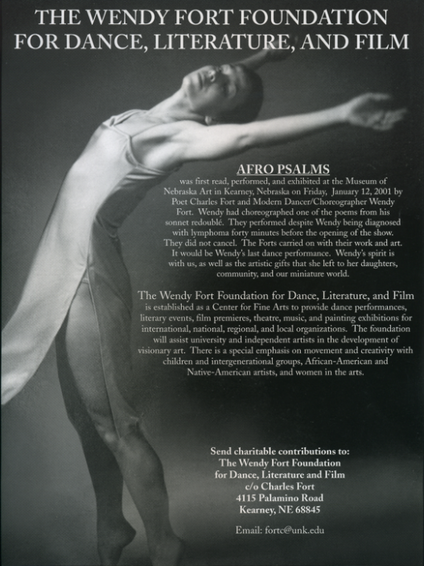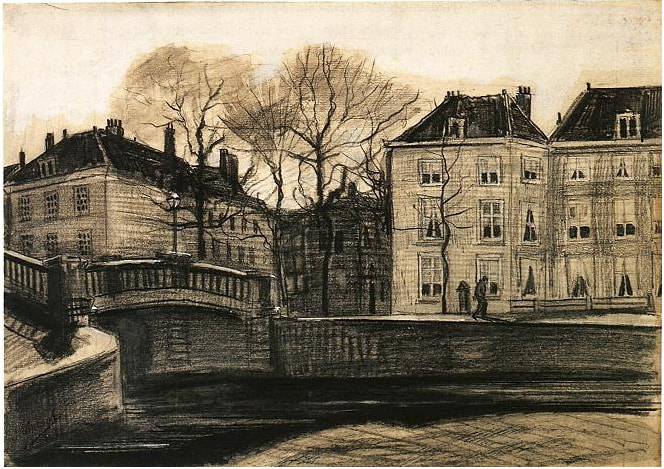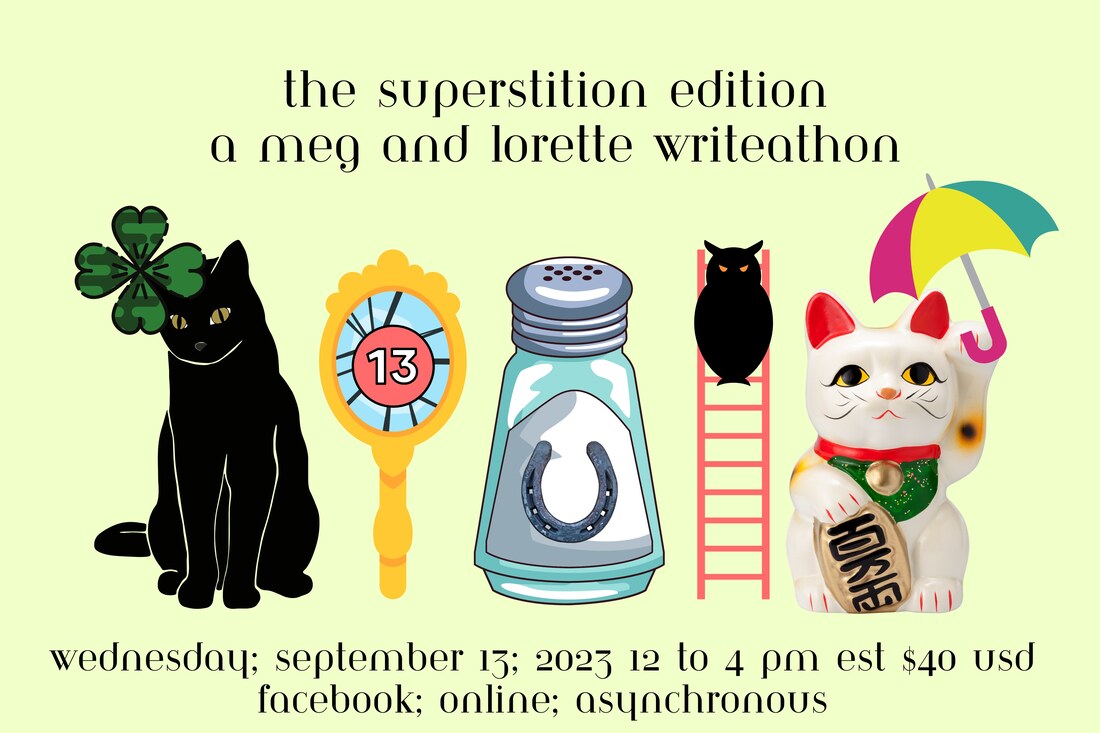|
s(k)inful cravings after April Yu pretty girls have sharp collarbones & knives for knees & watch as blood blooms from under the line of their brastrap. exquisite, they bleed, tiny droplets of holy water: curse the vampire that’s eating me from within but i can’t live without her. i’ll tell myself i am ethereal, stranger to the carnal. pull over, i hear, over music playing even after the car crashes. it’s summer again, but i fall no victim to Chick-fil-A & double whopper burgers, red & ribs each time. i suck the honeydew juice from my fingers like a nursing child— i am ethereal, i remind myself. i am sun-goddess hidden in the swells of my dressing gown, the shadows under budding breasts, sunlight leaking through her thighs. sun goddesses have fruit-tasting breath & hollow holes under their eyes. sun goddesses drink from the moon, not the cup her mother placed outside her door & begged her to open, open wide. tell me: how does the darkness covet? no, meet me by the willow tree on the next full moon & we can howl together, fingers digging into soft dirt & negative space i held out my skinny elbows, my armory of bones & placed them where i knew you’d find them: you always do. remember this: the dead do not forgive. & neither do the half-alive, the ones scared of both now & the afterlife, the ones who don’t tell you their craving lies elsewhere. open wide, i said. i didn’t like how you looked at me. i looked at you t hat way, once. like only you could fill the hollows in me made not by old age, nor osteoporosis, the kind of shadows blooming from torn ligaments— kiss me, find me floating on the 12:01 AM, digital clock numerals fogged into my brain on fire, running like a madwoman in the Vestibule of Hell as the numbers chase me: [100] [95] [93] [95] [89] [90] [89] again. tell me: is it comforting to know they’ll never reach [0]? Rue Huang Rue is a writer from the Mid-Atlantic. When she’s not writing introspective journal entries on bus rides, you can find her consuming her bodyweight in blueberries or running competitively. Her Instagram is @rue.huang.
1 Comment
Moored May moves Spring aside And sweat drips down walls, Enveloped coats. Boats Bump against crumbling Smoke stack shores. Behold – My feet stick to the Ground. My mind a bell Striking twelve. Maelstrom Peters to eddies And finally stops. Silence. Damp wood in Battle with firefly Seas. Brown sunned skin in Relative darkness. Curtain hug. Feet raw – Newly unstuck and Bound to heat columns Like boats in harbour. Sulakshana Guha Sulakshana Guha is an Indian writer. She has been published in journals such as the Kyoto Journal and Topical Poetry. Hoch’s View from a Bilge Pump on a High-Rise “DADA speaks with you, it is everything, it envelops everything, it belongs to every religion, can be neither victory or defeat, it lives in space and not in time.” ~ Francis Picabia Hoch snips her photomontage with a sharp tongue. Da means yes in Slavonic. Or does dada mean hobbyhorse in French? She is Germanic, no face, no nonsense woman wired to her white hair. She means no, but can’t make up her mind, decide where the line divides itself between life and art, hetero and homosexuality. This is where she lives, in her own collage of the in-between, trying to make a stand for something, just not knowing what, stuck hanging on the edge of her own blank map until suddenly, her husband pulls her up from the lip of a building, screws her onto the port side into a bilge pump where she overlooks her own city, mismatching faces and bodies, gender – men’s heads on babies’ bodies, machines and humans – gears polluting eyes. Greta Garbo straddles Kathe Kollwitz in an alley below, both in striped pant suits twirling cigars between five fingers like a baton, all the while discussing how to best take advantage of men with red feather boas and finally it all makes sense to her, this illogical façade of senselessness, women using the ideals of beauty to outsmart men, smog annihilating industry and all the generals involved in the creation, the need for dada to consume her, the urgency in which she desires to spread the word to artistic and materialistic consumers that it is okay to be in the middle, in space, unsure of liking men or women, industry or nature. She unscrews herself, finally decides to reject her “good girl” image, and creates illogical cut-outs from other art forms, even though hers will never quite measure up, but isn’t that the point? She is done with perfection, never quite had it anyway. Dada is her new religion. Til Brugman, her ex-female lover, preached – never perform in a female masquerade: and more poetically, never darken your eyes with the devil just to parade around in non-clicking heels. She resolves to claim back not only her masculinity, but also cooking, confidence, and anxiety, and her desire to create the ridiculous. She slices all things she likes and dislikes from the city below and imposes them, one at a time, in her own space filled with everything, all her idiosyncrasies that prove the world is a blank rooftop packed with pointless possibility. Lesley Richardson Lesley Richardson holds an M.F.A. from the University of North Carolina at Wilmington and a certificate in Multicultural and Transnational Literature from East Carolina University. Her M.F.A. thesis was awarded a Pass with Distinction, a first-time award. She taught at Coastal Carolina Community College for eight years, and she is in her twelfth year of teaching at Cape Fear Community College. Her publications are included in the following literary magazines and journals: Coal City Review, Flint Hills Review, The Asheville Poetry Review, California Quarterly, and Main Street Rag among others. She is currently working on a novel and a book of poetry. In Elder Years She fingers photographs and stares at them, intent yet vague, as if she’s searching for some once-familiar place. Her eyes implore, Just one I can remember. But the phlegm that darkens, clogs her mind, takes all control. Her stare dissolves. Somewhere inside concedes, allows her to let go. Her memory bleeds, she shifts up, off her bed into the hole that grips her life — uncertainty. But then she reaches back into the box for pics she photographed in some past life. The mix of foreign places, airports showing when she traveled islands, shores, Australia once. A speck of what she had known filters in . . . the lighthouse trips, the stairs she climbed. A din of waves against a rocky cliff confronts the four walls that she lives within, the room where out of focus scenes are all that bloom. MFrostDelaney MFrostDelaney is a bean counter by trade, a tree hugger in heart and a recovering soul, practicing life in New England. A member of the Powow River Poets, her poems appear regularly in Quill & Parchment, has been nominated for the Push Cart.Prize. She has contributed poetry to HerStory 2021, has poems in the Powow River Poets Anthology II and Extreme Sonnets II, and displayed a poem at New Beginnings – Poetry on Canvas, Peabody Art Association 2022 Phantasmagoria Editor's Note: This story was inspired by Paroxysm Bloom II, by Crystal Wagner, not by the art shown above. Click here to see the work. Let me tell you about the way I died. Let me tell you about the moment of my death, how my body shivered and split apart at the junctions to release a cumulus of colour, a cacophony of azure-ebony-moss-magenta-gold. Let me tell you that my dying was beautiful. No need to feel sad about what happened. It’s okay to remember joyfully the sight of me unravelling, my fingernails forming a thousand scales, my sinews bundled into sheaves of wheat, my open mouth like a honeycomb. It’s okay to be amazed. I know you’ve never seen anything like that before, and you probably never will again. It’s okay. I don’t think it really matters why I died because the how was so spectacular. No one was to blame, I’m sure of that. If someone was to blame, if someone caused me to explode like a star at the end of its lifespan, surrendering its molecules to cosmic judgment, then I hope that person is proud of what they accomplished. I hope they shout it on the street corner and sing it in church and whisper it to their loved ones before bed. I know that this blast of turquoise-amber-scarlet, this multihued inferno blazing into a sudden void, is not the end. I know that someday my scattered spirit will reintegrate in a new vessel. Perhaps I’ll come back as a dandelion. Perhaps as a clay urn holding the ashes of someone important. It doesn’t matter. What matters is the look on your face when you witnessed my glorious dissolution: surprise, a hint of terror, and then—like a sunrise—awe. You couldn’t believe your eyes. To be fair, you were expecting a normal first date. Some getting-to-know-you conversation, a few genuine chuckles, awkward quibbling over who was going to pay. Not this radiant display, but aren’t you glad you were here to see it? Aren’t you glad to have that memory forever obscuring other, less extraordinary moments of your life? Aren’t you glad to have known me for that blink of time? I was glad to know you, friend. I liked seeing your smile when you noticed that the dessert section of the menu offered green tea ice cream. I liked the flamingo-beaded purse that you slung casually over your shoulder. I liked how you kept wiping your hands on your pants like this whole casual dating thing made you nervous, but you were showing up for it anyway. If I hadn’t gone off like a firework halfway through lunch, I think we could have meant something to each other. Instead you were left with dazzling loops and whorls burned into your retinas so that when you close your eyes, the image will replay over and over. So that you’ll never forget me. So that I’ll never fade away. Desiree Remick Desiree Remick (she/her) is a student at Southern Oregon University. Growing up in the Rogue Valley, she learned to love nature, literature, and fencing: three passions that remain with her to this day. Her debut short story was the runner-up for Kallisto Gaia Press’ 2020 Chester B. Himes Memorial Short Fiction Prize. Her work has also appeared in the Nude Bruce Review and Unlost. We are very excited to have longtime friend of the Review, Brent Terry, join us next month for a fun generative workshop stuffed to the gills with poetry exercises.
Brent is a legendary creative writing professor and award-winning writer. He is known for his wacky sense of humour, zany wordsmithing, and love of rock n roll troubadours, as well as for his passion for trail running in neon kicks. Don't miss this special lunchtime event, a chance to play with words and images in a new way. Click here to sign up. The Metamorphosis You thought I was…dead? That’s silly. I was only sleeping. Sleep, as I have discovered, is not like death at all, But rather another state of living. The dead Don't dream, do they? I have dreamed, let me tell you, I have dreamed for a thousand years, And I have lived more in each one than I have before. I have dreamed of “the bodies changed into new forms” As the world began, and I have dreamed of the look of terror On your mother’s face as it will end… Tricked? No, I wasn’t tricked into sleep, for The goblet was full of beauty the whole time. Don’t you understand? The sleep was beauty: I dreamed of Chaos before the world began, and She is “a crude and disordered heap- Naught but stagnant constancy.” She did not have logic. Beauty is what exists outside of logic, you see? Sleep is beauty, because beauty is what exists outside of logic, Or underneath it. It takes the subconscious and the subjective to make up what is sublime. Nothing more, nothing less. They say that even Odysseus was made foolish by radiant Penelope. I opened that box to see what beauty is. I’ve been called That word my entire life and yet I Don't know What it means. I thought if I saw what beauty looked like… It doesn’t matter, at the end of the day. I have drank the goblet, and I have seen beauty now, and now I am awakened. By you. Hello. You walked through Hell for me. Men have a strange habit of doing that, don’t they? Of going to the underworld for a woman they love. As I said: beauty is the death of logic and the birth of love. It is these foolish idiosyncrasies of people that are relics of that primordial existence. How is your mother, by the way? Oh, I know she still hates me, but I don’t mind. I never expected a goddess of lust to be rational. I assume Athena hasn’t found herself a lover yet? I always liked her. She never looked twice at me. Give me some of that ambrosia, Cupid. My throat is dry, and I’m thirsty for godhood. I’ve left that “poorly united dissonance of the source of things” For a third and final act in my “perpetual song.” Just say you abducted me. The gods won’t care. Emily McM Author's note: "All the quoted parts in my poem are from the first book of Roman poet Ovid's Metamorphoses. The translation is mine." Emily McM. is a high school student who enjoys theatre, poetry, art history, and liberal arts in general. She lives in North Texas with her family, cat, and dog. Afro Psalms I rehearsed and collaborated with my late wife Wendy Fort, dancer and choreographer, on Afro Psalms in the fall 2001, a year before her passing. Wendy was diagnosed with lymphoma 30 minutes before the performance. We drove quickly from the doctor’s office to MONA and decided our performance would go on. Wendy started treatment two days later. Mona’s curator slowly walked out before the audience of 300. Wearing white gloves, he placed a painting on the easel. I read one poem each time it settled on the easel. After I read the poem selected by Wendy to perform Stepping Out. Wendy received several standing ovations and applause that still linger in the halls of the Museum of Nebraska Art... It would be the last dance of her life. Her life too. I was co-curator. I chose 15 paintings and wrote a poem based on each painting, a sonnet-sequence. I titled the entire sequence Afros Psalms and titled each poem based on my observations and history depicted in the art. The paintings and poems were framed and shown during the opening and other events. Wendy’s memorial service (piano, music, poetry, reflections, and song) filled the grand hall of MONA. There were poster boards and graphics made by our two daughters, photographs, and dance performances. Ten years ago, one of your staff members sent me the original video of Wendy’s last dance. One of my student assistants filmed the entire Afro Psalms premier performance and the Memorial Service). I was able to capture the attached single photographs. Charles Fort "This series of paintings and drawings portrays the day-to-day lives of African Americans in the first half of the 1900s. The empathetic images, created by artist Grant Reynard (1887-1968), are given context by the historic recollections of the accompanying poetry by Charles Fort. Through the artwork and the sonnet redoublé inspired by it, the viewer may better understand the lives of African Americans in the early twentieth century." Museum of Nebraska Art, website Afro Psalms The woman slow-danced in Satan’s arms tossed a rose to a black man on a throne in love with a slave’s wish and circumstance undressed in the parlor before his kiss. The hunchbacked poet walked in the meadow until he memorized the King’s English dreamed in his fever of the crippled ghost who in his shame praised the woman he mourned. His wish was a source of the broken crown the journal written by God’s shaking hand and fires that smoldered in the great sea with the blood of the world cupped in his palms. They recited his wish, her love, his shame brooding in the shadow of Othello. Black Dolls, White Dolls The black women gathered parts of white dolls before the Supreme Court a young lawyer: black doll and white doll before a black child as the black child caressed the white doll face. The black child had seen beauty in God’s face before the headline news of a bombing and four girls killed at the Birmingham church freedom riders, riots, water hoses. What if the white women gathered black parts attached a white head to a black body or a gifted black head to a white body attached black beauty to the white beauty? Three doll eyes pecked out by a yellow crow the hunchbacked poet walked in the shadow. Justice Crime in the city became punishment in the field with the blindfelled crowd and a hooded soldier at ease like a coiled serpent taut as a bent cross on his armor. The lunatic and depraved left the cry quarter for the long march to circle the gallows as the hanging judge tore his bible and mused: Punishment in the field became crime in the city. Was it how we punished the wealthy who plundered, robbed, and killed or the poor and how many we killed Wearing their tar and feathers like a gift? Crime in the city became punishment in the field with quicksand and rope a foot too short. America Give us our poor king of the free who discovered truth every four years in a pickup truck and trailer park blues or his sharkskin suit at the juke joint bar. King of the free give us our poor who born to circumstance and keen design without the kettle of blueblood bedside diseased in heaven without a birthright. One black man in love with America polished the president’s silverware raw and one black man in hatred of thieves crawled the back alley and stirred the fat clean. Give us our poor moved to a burial ground his wish was a source of the broken crown. Stepping Out This was not a vogue it was jazz riff born out of a mud cart and wagon wheel into the twist the slide and the house fly from the lean genius of Louis Armstrong. There was coloured heaven at the movies and What a Wonderful World he laid down in a pin-stripped blue Easter suit wing-tip before James Brown fell down in a black cape. The swoon of the crooner and double bass born out of a slave’s wish and circumstance into a soft shoe dance and cocoa bop down home country blues into rock and roll. Dancers and singers gave up the seven mules as they beat the man with the pitchfork blues. Choreographed and Performed by Wendy Fort. In a Just and Miniature World It is a fearful thing to love What Death can touch. There were clear signals you were not well fourteen days and fourteen nights doubled over. The evening’s champagne was left unopened tied in blue ribbon like death’s bright palette. The horse drawn carriage arrived at midnight with pouches of a used and rare blood type as the devil’s fortune took the devil’s turn and catheters and picks left a territory of welts like the discarded stars falling in your eyes. The hooded driver passed the medicine bag to Dr. Bascom passed down by his grandfather who bowed to the South Dakota mountains wiped your forehead and took your rapid pulse. This was not a part of the evening news unequal to holy war and starvation of nations only comfort to a husband with two daughters left on the back porch with no crimes to unlearn who knelt together like angels on the great plains. There were clear signals you were not well with two weeks of doubt until they scanned your organs as the fog lifted over the Platte River a smoky black mushroom like a newborn stillborn known only as a case number left at the prom door. There was no wind in Nebraska on New Year’s Eve as the head nurse tapped your veins for the morphine until your white count rose and your platelets danced and your recovery made a good country doctor flinch after a distant signal found the artery of remembrance. ** After the Rehearsal We gathered your choreography of Afro Psalms our wedding vow performance on marbled floors at the Museum of Nebraska Art MONA To Its Friends. You practiced for hours at Harmon Park’s rock Garden raised by WPA flophouse workers free room and board for the farmers and artists the shapers of Central Nebraska’s Stonehenge. We gathered the African kalimba and rain stick metaphors of black magic and voodoo blood for our evening’s curtain call in the corn palace under a shower of circumstance and disease. Forty-five minutes before the poetry reading your dance and the art exhibit opening we were seated in the small doctor’s room half-alive in thin aluminum chairs among the scorched leaves in the hollow and the bright wings of the angel noble in their wild and hovering insignificance. It was the doctor’s first and correct call: I am sorry to have to tell you you have lymphoma. There was nothing to be said. We walked into the distant world thirty minutes until our performance. We would not tell our daughters tonight and we gathered our poems and music hollow instruments that moaned in our hands. As we arrived and hurried into the museum to a full house of literati and wise docents the sandhill cranes and life studies seemed alive with the avant-garde of the central great plains. You were stronger than the hunger of gravity and you had not doubled over for an hour and the strong medicine they gave you made you more of your second self. I saw the throttle of pain in your eyes with ten long minutes to show time. Our daughters Claire and Shelley sat in the front row with large eyes small hands and their larger hearts knowing something was wrong with you. They had stared into the devil’s wishing well as you walked on stage they wished you well. **
In Memoriam For Wendy Fort Twice they said you would not make it and you awakened like a small bird in its first dance outside its fallen nest. Husband, two daughters, and friends sat at your bedside at daybreak into the evening until each minute fell out of the heavens like gold coins in the lilac wild that were your eyes. Your chest rose and your breath fell and the night nurse detected a slight murmur in the parlors of your heart. It’s going to be all right mommy, shhh, shhh, Shelley whispered. They held your hands for hours as Shelley sang into your eyes that suddenly opened and you smiled and said to your daughters: I love you, write it in your journals. They wrote it in their journals in their bedrooms in your voice on your last day on earth before heaven you told Claire (16) and Shelley (12) you would speak to them in their dreams. What am I going to do without you without the walks to elementary school? I did not want you to walk me. it would be funny to my friends. What about our little dog Mojo in the park who leaped like a deer in the prairie grass behind the Windy Hills Elementary school? It’s going to be all right mommy, shhh, shhh, Shelley whispered. Claire screamed: I don’t want another Mom. She won’t see me graduate college married or dance in the meadow soft shoe with Barishnikov or Astaire. She will be gone forever. Claire comforted Shelley: You will be fine. You are beautiful. Wendy made you beautiful. There is nothing to fear. Afterwards in the afterlife you gave us the proper signals: Claire dreamed you had left us and the morning clock stopped. Weeks before your photograph that blew across the room with closed windows and without the Nebraska wind landed face up. Shelley wanted to play the violin for you and they found it in the dark locker halls. She played Cripple Creek by memory though her music sheets were in the case. Shelley’s last song for you to hear a symphony filled the hospital halls and lifted your spirit slightly from the hollow ground to higher ground. After I heard your last breath, Wendy, I awakened Shelley from the fold out bed and she touched your hollow chest. Do not worry Mom, it will be like meditating. You were gone. You asked: Where did she go? Can you close her mouth? The nurse closed your mouth. We walked down the hallway and drove out of the parking lot as Shelley wept in the backseat. I suppose it was Shelley’s young heart and age: We should have gotten a jar for her last breath finding something alive to trick death? Charles Fort The first five poems above are from Afro Psalms, an ekphrastic collection first published by Kearney, University of Nebraska, in 2001, and performed the museum. Many thanks to the Museum of Nebraska Art for the use of the artist's images. Charles Fort is the author of six books of poetry and ten chapbooks including: The Town Clock Burning (St. Andrews Press) and We Did Not Fear the Father (Red Hen Press). His work appears in 45 anthologies, including The Best American Poetry. Fort is Distinguished Emeritus Endowed Professor at the University of Nebraska at Kearney and Founder of the Wendy Fort Foundation Theater of Fine Arts. Poetry Honours and Awards include Yaddo Fellow, MacDowell Fellow, The Writer’s Voice Poetry Award Individual Artist Award in Poetry, Connecticut Commission on the Arts, Poetry Society of America Mary Carolyn Davis Memorial Award, the Randall Jarrell Poetry Prize, and more. Fort received the Honorary Doctorate of Humane Letters, honoris causa, from Siena Heights University and Faculty Scholar Awards from the University of Nebraska at Kearney and Southern Connecticut State University, and he is represented on the NC Literary Map: Fort founded the Creative writing program at UNC-Wilmington. Fort has completed 350 villanelles. His first novel is forthcoming. https://www.poetcharlesfort.com/ Van Gogh Revisits His First Painting as a Ghost I’ve seen this street hundreds of times, sometimes even in my dreams. So what is it about one man, slouching down the canal, the light like dawn, The way the lines are stone and water skeleton and key? Fog makes us intimate, Shapeless, he and I Just a handful of neighborhood Undistracted by a wide expanse of sky. When the curtains part halfway Like a careless mouth We flow like water Into their open lives. Jenna K Funkhouser Jenna K Funkhouser is a poet, freelance writer, and mosaic artist living in Portland, Oregon. Her poetry has recently been published by Geez Magazine, the Saint Katherine Review, and As It Ought To Be, among others. She is currently working on her second volume of poetry, an ekphrastic exploration of fully inhabited lives. The momentum continues with the launch of our second writeathon, the Superstition Writeathon Event! Wednesday, September 13, 12 to 4 pm EST! This session, we will focus on the theme of superstition, writing about uncanny objects, beliefs, and the ways we invest the world around us with meaning. Realtime, online, and asynchronous: you will work independently, while connecting in a private Facebook group. Those who can’t join in real time will have a week to participate at their convenience. Meg & Lorette’s writeathons will be a monthly happening, where writers work and play, flexing their creativity with prompts and possibilities designed to eliminate the blank page. Dedicate four hours to writing, leaving your usual routines and censors at the door. Experiment, explore, and come away with a library of eight drafts to develop and revise later. There will be ekphrastic prompts from the world of art, vintage photography prompts, Meg’s famous word lists, and more. you away. You can write microfiction, poetry, CNF, plays, memoir, or anything else. Writeathon works will be eligible for publication in our forthcoming magazine, ROBIN: a literary quarterly. We can’t wait to see the surprising stories that will be born. Click here to sign up or for more information. https://ekphrasticmicrofictionworkshops.weebly.com/the-writeathons.html#/ “Sometimes in a nervous frenzy I just fling words as if I were flinging mud at a wall. Blurt out, heave out, babble out something — anything — as a first draft… Until it exists, writing has not really begun.” John McPhee Meg Pokrass is the award-winning author of 8 flash fiction collections, Mslexia Magazine’s Flash Challenge creator, and founding editor of the Best Microfiction anthology series. Lorette C. Luzajic is the author of several collections of flash and prose poetry, and an internationally collected mixed media visual artist. Her passion for art history and lit collided in the founding of The Ekphrastic Review, the world’s flagship journal of writing inspired by art. https://ekphrasticmicrofictionworkshops.weebly.com/the-writeathons.html#/ |
The Ekphrastic Review
COOKIES/PRIVACY
This site uses cookies to deliver your best navigation experience this time and next. Continuing here means you consent to cookies. Thank you. Join us on Facebook:
July 2024
|
